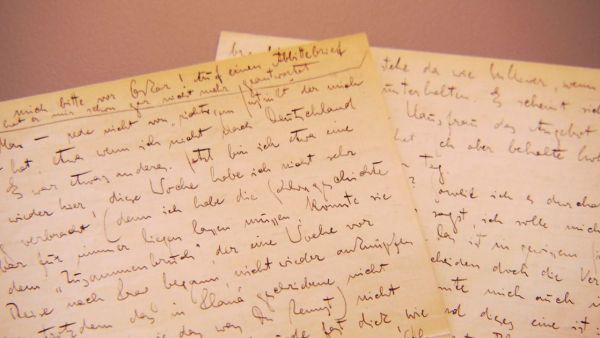Israel's Supreme Court has ruled that a collection of writings by Franz Kafka must be permanently transferred to the National Library of Israel, ending a lengthy legal battle.
Kafka, born in Prague, died of tuberculosis in 1924 at age 40. He bequeathed his writings to his close friend Max Brod, ordering him to burn everything that was unread.
But Brod, the executor of Kafka's will, ignored the instruction and published many of the Jewish German-language writer's works.
When Brod fled Prague for Palestine in 1939, he took with him a suitcase full of Kafka's writings.
When Brod died in 1968 in Tel Aviv, the papers were part of the inheritance he left to his secretary, Esther Hoffe, who in turn left them to her daughters, Eva Hoffe and Ruth Wiesler.
The Tel Aviv-based sisters insisted on keeping the vast collection of rare documents, but authorities argued they were part of Israel's heritage and should go to the National Library in Jerusalem.
After a legal battle that lasted eight years, the Supreme Court ruled that according to his will, Brod did not want his property to be sold at the highest price, but for his literary estate to go to the National Library.
Esther Hoffe had already sold the manuscript of Kafka's most-famous work, The Trial, for 2 million dollars. The family kept most of the collection in banks in Israel and Switzerland.
"This is a celebratory day for any person of culture, in Israel and abroad," National Library board chairman David Blumberg said Monday.
"The National Library will follow the court's ruling and will preserve the cultural assets by keeping them in the country as well as making them accessible to the general public," he said.
The library said in a statement that some of the material it will receive includes Kafka's handwritten correspondence with Brod, his Paris journals, drawings, and many of Brod's letters to Kafka.








